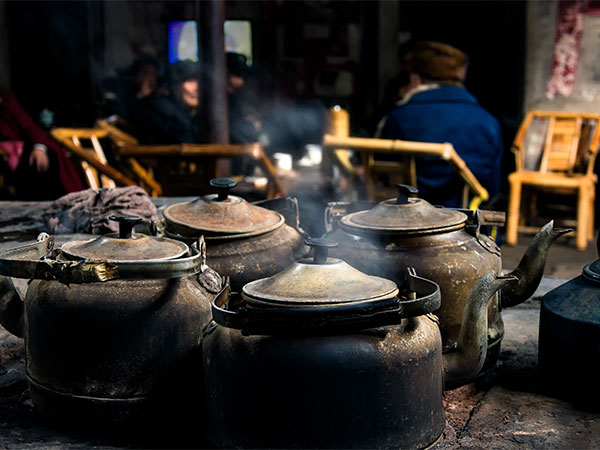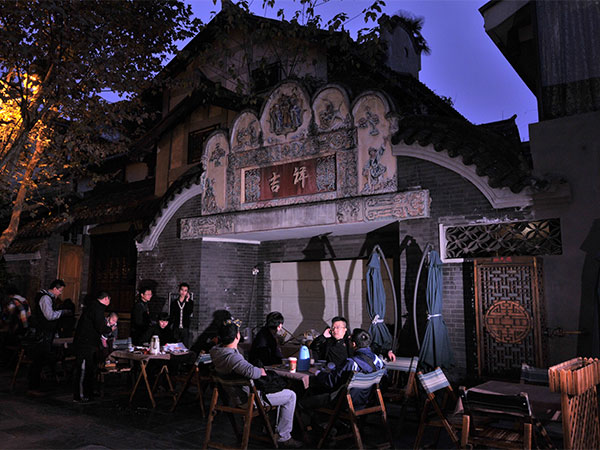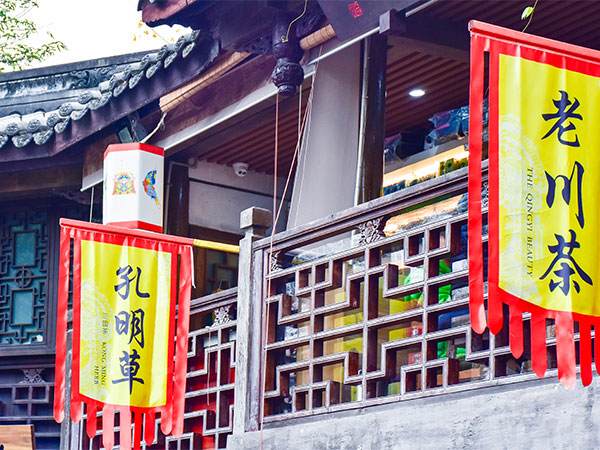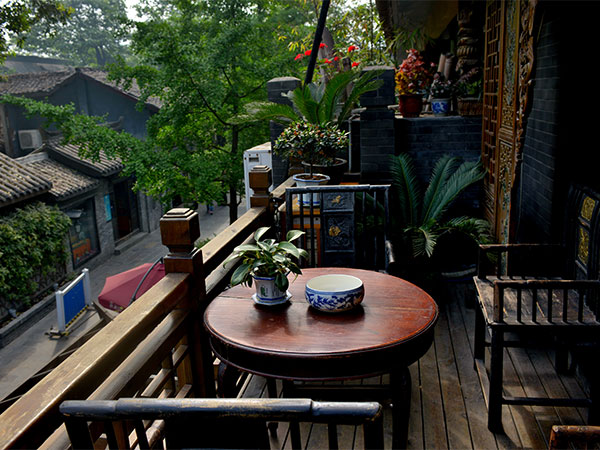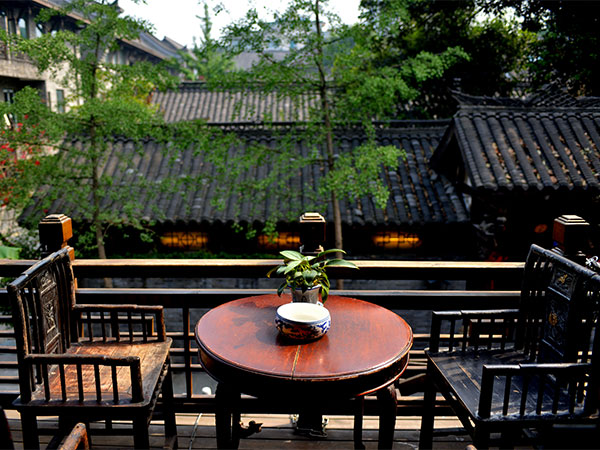China is the homeland of tea. The tea culture with rich heritage has the same origin and a long history. Chinese tea culture blend of the ideological essence of Confucianism, Taoism and Buddhism. Especially the sobriety, philosophical, passion, affinity and tolerance of Confucianism are performed thoroughly. With thousands of years civilization, the Chinese tea in Ba-Shu (Sichuan) area develops and evolves into an unique culture—- Sichuan tea culture.
Tea Culture in Chengdu has been turned into a unique characteristic of Ba-Shu “teahouse culture.” It says in a proverb that ” there are few sunny days in Sichuan, but many teahouses around the corner.” Chengdu teahouse is notable because it has a wealth of social function: casual, party, entertainment and civil courts.
In addition to leisure teahouse, it is also an important social place. In the ancient time, people from different industries, all kinds of associations went to teahouse to understand the market, see goods, do business, see goods transactions. Teahouse is regarded as a good place to make tea party for people from all walks. Teahouse thus becomes a mirror of social life.
Teahouse in ancient times also social disputes mediation functions. If there is a dispute between neighbors and friends, the two sides agreed to go to a teahouse for “judge.” Each part of the disputes need to contact your local bigwigs to be the mediator. After debates, the conciliator will arbitrate . If both parties did wrong, they will split the bill of tea, but if one of them is in the wrong, he or need to apologize and pay for the tea money.
Teahouse is also a socio-cultural entertainment place. In the evening, teahouse offers opera playing, commonly known as “playing around the drum.” In addition, some teahouse offers some performance, such as Sichuan dulcimer, storytelling ect. People can enjoy tea at the teahouse, while listening to ballads with strong local characteristics.
In addition to selling tea, the teahouse also sells candy, cigarettes, melon seeds, peanuts and other snacks. After the liberation of China, guests can play cards, board games, read books and newspapers, enjoy flowers game-birds, and even sing karaoke, watch video programs. The entertainment contents become fashionable and more novel. But teahouse remains the function as local traditional social event venue.
Chengdu people love going to the teahouse, because Sichuanese like “chat”. They like chatting with friends or relatives at the bustling teahouse, while drinking tea, eating snack and enjoying the folk performances.
The recorded tea-drinking history of Chengdu is more than 2,000 years. Most of the tea teahouses are distributed in the city’s alleys or parks, they are the ideal recreational places for the locals. Chengdu people use long-mouth kettle to make the tea, and a good tea maker can use it skillfully without a drop spilling out.
Chengdu teahouse are mostly bamboo sheds, filled with bamboo tables and bamboo chair. The teahouse often choose jasmine tea, Longjing, Biluochun. They serve tea in exquisite covered tea-sets . This tea-set consist of tea bowl, tea boat( saucer) and lid , each of which has unique features.
Chengdu teahouse has always been very prosperous. Whether in scenery area, or among the downtown streets, it is easy to find folk teahouse with local features. The teahouses charge a low price, but offer good service. The customers often order a cup of tea and a plate of snacks, then sit there for a half-day, chatting or playing cards with friends or family. Then the tea culture of Ba-Shu area (Sichuan) is reflected vividly.
Reputed as the “top hundred teahouses in China”, Shunxing Teahouse is a good place to drink a cup of Chinese tea. In this comfortable environment, you can not only find the essence of the tea culture, but also find the mystery of the nature. Besides drinking tea only, people can have great fun in the teahouse by chatting, playing chess and so on.

